Investigative movies have a unique power to engage, intrigue, and provoke thought. They take us into the heart of complex mysteries, unraveling secrets, and exploring the human condition under duress. In this list, we delve into the top 10 investigative movies that have broken new ground, each with its own compelling narrative and genre-specific charm. From the relentless pursuit of truth in “All the President’s Men” to the psychological depths of “Se7en,” these movies invite us into the worlds of journalism, law enforcement, and personal morality. Join us on a journey through the realms of suspense, deception, and the unyielding quest for answers in these cinematic masterpieces.
Top 10 Investigative Movies
10. All the President’s Men (1976)**
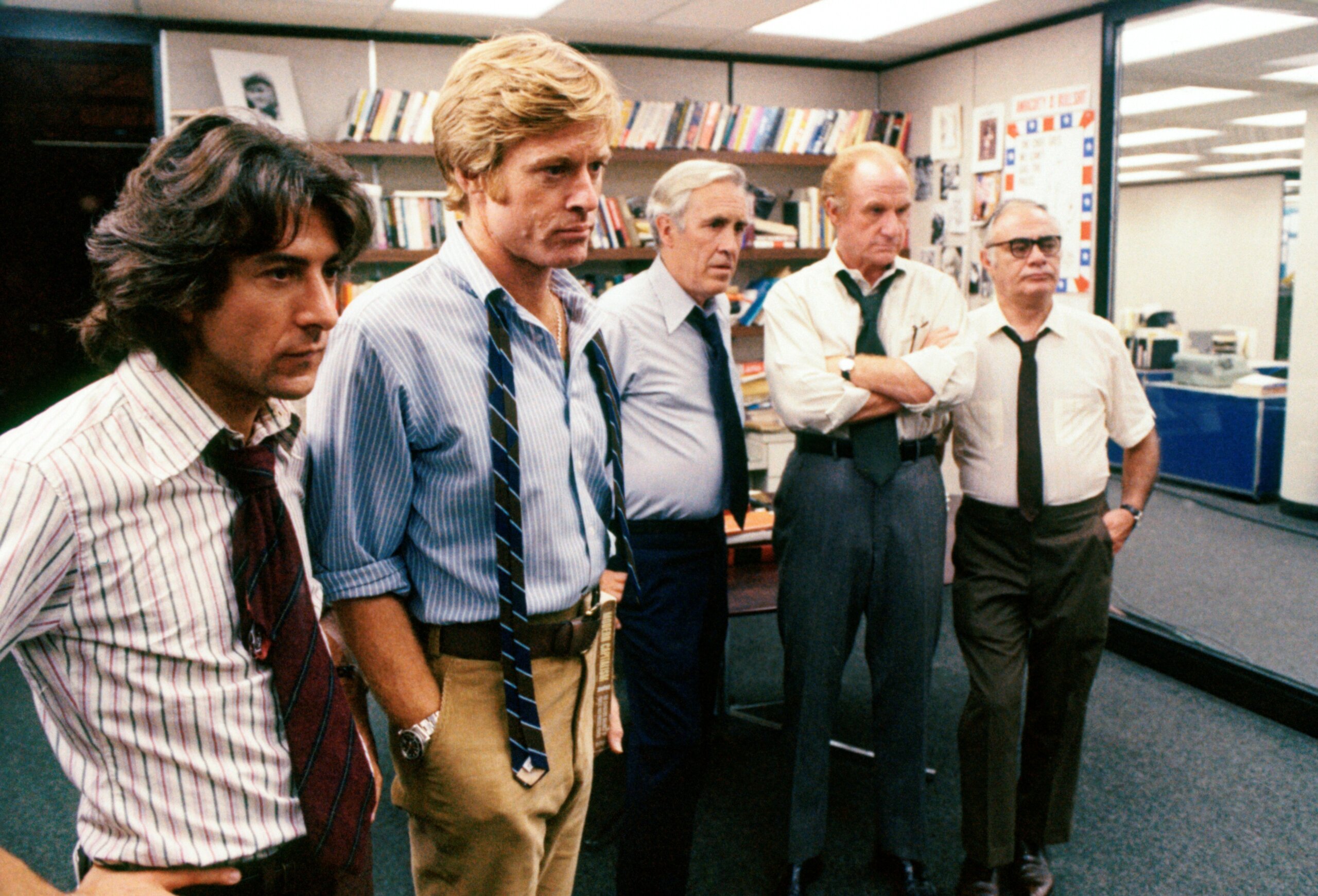
“All the President’s Men” is a cinematic masterpiece directed by Alan J. Pakula that delves into the heart of one of the most significant political scandals in American history: Watergate. The film brilliantly captures the essence of investigative journalism and its impact on the political landscape.
Watch it on Primevideo
The story revolves around two journalists, Bob Woodward (played by Robert Redford) and Carl Bernstein (played by Dustin Hoffman), who work for The Washington Post. They stumble upon a seemingly routine break-in at the Democratic National Committee headquarters, but as they dig deeper, they uncover a web of corruption that reaches all the way to the White House. Their relentless pursuit of the truth, often against great odds and danger, ultimately leads to the resignation of President Richard Nixon.
What sets “All the President’s Men” apart is its meticulous attention to detail and realism. The film does an exceptional job of portraying the grind of investigative journalism—endless phone calls, chasing down leads, cultivating sources, and facing intimidation from those in power. It immerses viewers in the world of newsrooms and the excitement of breaking a major story.
Moreover, the film captures the essence of the era, from the fashion and technology of the 1970s to the prevailing sense of skepticism towards government. The performances of Redford and Hoffman are stellar; they bring Woodward and Bernstein to life, making the audience feel the weight of their responsibilities.
In a broader sense, “All the President’s Men” underscores the vital role of a free press in a democracy. It celebrates the notion that journalism can be a powerful force for accountability, even when faced with enormous challenges. The film is a reminder that investigative reporting is not just about revealing facts; it’s about upholding the principles of truth, justice, and the rule of law.
In conclusion, “All the President’s Men” is a timeless classic that continues to resonate with audiences today. It’s a gripping tale of investigative journalism at its best, where two determined reporters risked everything to uncover the truth and, in doing so, changed the course of history.
-
Spotlight (2015)**
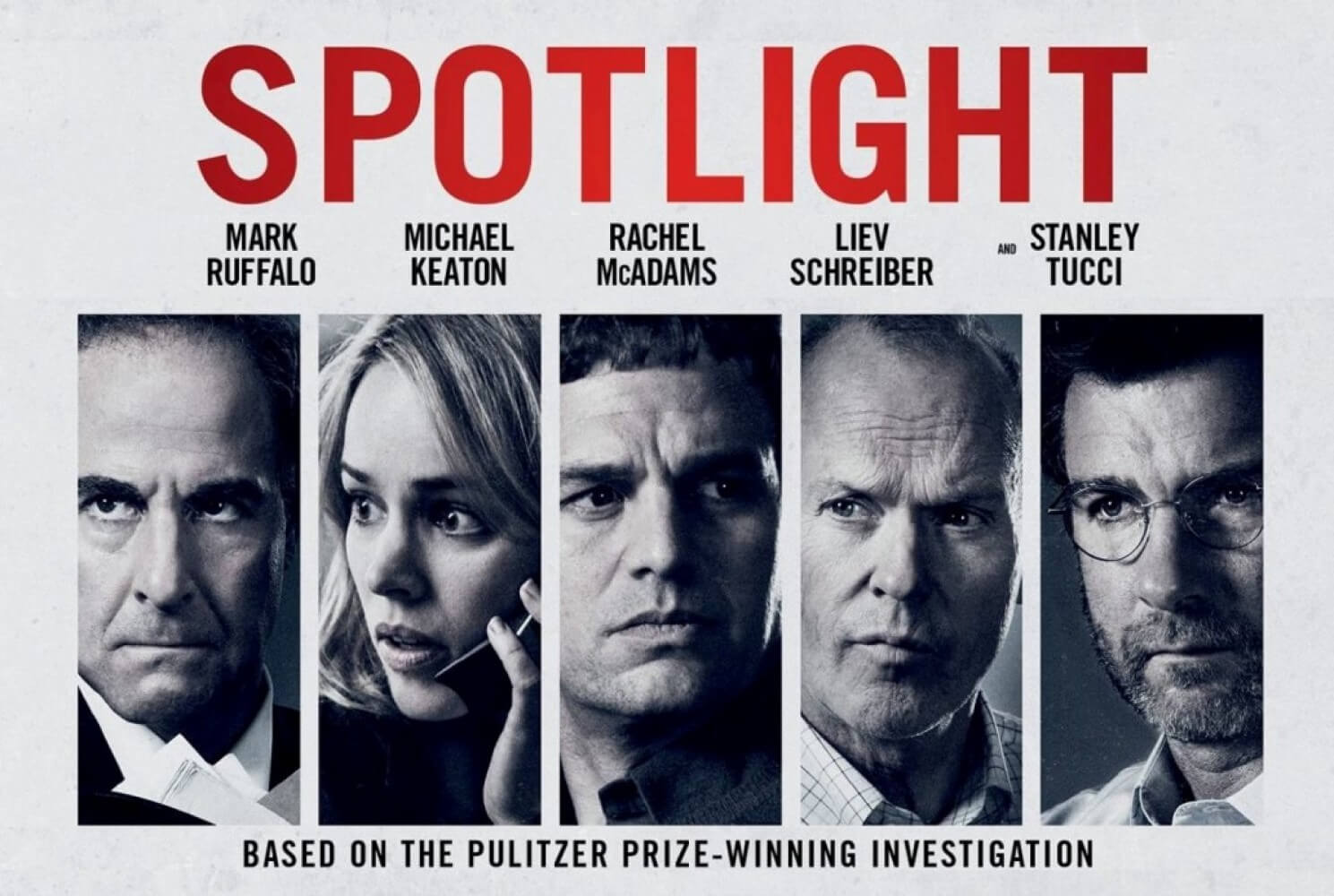
“Spotlight” is a modern masterpiece of investigative journalism on the big screen. Directed by Tom McCarthy, this film tells the riveting true story of The Boston Globe’s Spotlight team and their unrelenting pursuit of the truth behind the Catholic Church’s extensive cover-up of child abuse by priests.
The movie is set in 2001, when the Spotlight team, led by Walter “Robby” Robinson (played by Michael Keaton), begins investigating allegations of child molestation against a Boston priest. As they delve deeper into the story, they uncover a shocking pattern of abuse and an institution that has been complicit in hiding the truth for decades.
What makes “Spotlight” exceptional is its commitment to authenticity. The film doesn’t rely on sensationalism or melodrama; instead, it focuses on the investigative process itself. It shows the dogged determination of journalists who spend months sifting through records, interviewing victims, and facing resistance from both the Church and the community.
The ensemble cast, including Mark Ruffalo, Rachel McAdams, and Liev Schreiber, delivers powerhouse performances, embodying the real-life journalists they portray. Their nuanced portrayals humanize the characters and convey the emotional toll of uncovering such a harrowing story.
“Spotlight” also sheds light on the broader implications of investigative reporting. It underscores the critical role of a free press in holding institutions accountable, even when those institutions are deeply ingrained in the fabric of a community. The film serves as a reminder of the power of investigative journalism to effect change and bring justice to those who have suffered.
Additionally, “Spotlight” highlights the ethical dilemmas faced by reporters when handling sensitive stories. The team must grapple with the responsibility of revealing information that could devastate individuals and communities while ultimately serving the greater good.
In conclusion, “Spotlight” is a compelling and thought-provoking film that pays homage to the importance of investigative journalism in uncovering uncomfortable truths. It’s a testament to the perseverance of those who seek justice through the relentless pursuit of the truth.
-
Zodiac (2007)**
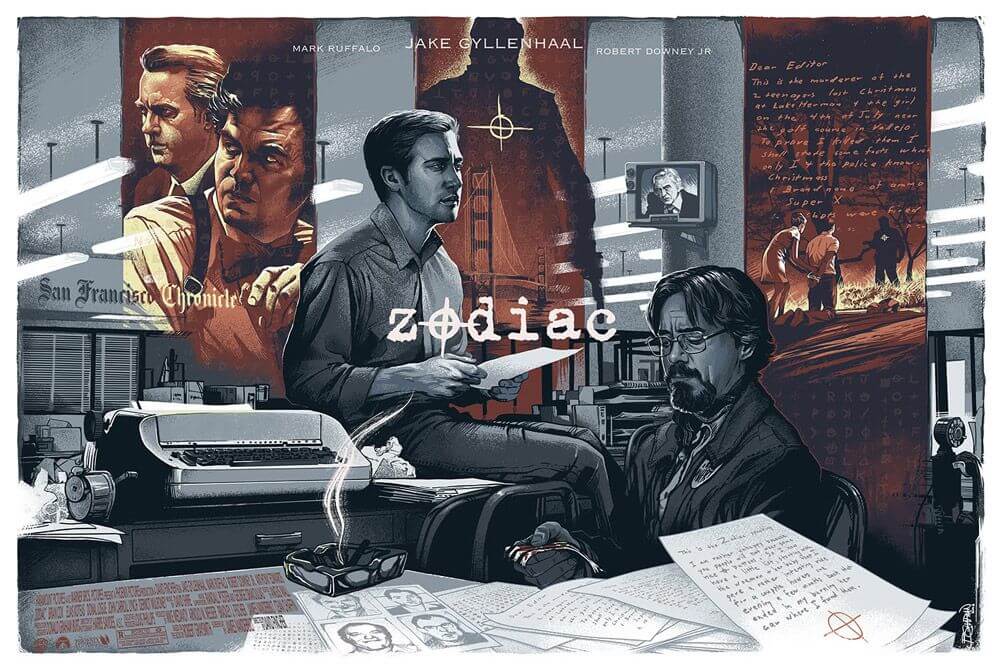
“Zodiac,” directed by David Fincher, is a chilling and meticulously crafted thriller that delves into the real-life hunt for the elusive Zodiac Killer, a serial murderer who terrorized the San Francisco Bay Area during the late 1960s and early 1970s.
The film follows a trio of main characters: Robert Graysmith (played by Jake Gyllenhaal), a newspaper cartoonist who becomes obsessed with solving the Zodiac case; Paul Avery (played by Robert Downey Jr.), a journalist at the San Francisco Chronicle; and Dave Toschi (played by Mark Ruffalo), a detective with the San Francisco Police Department. As the Zodiac Killer taunts the authorities and the media with cryptic letters and ciphers, these individuals become consumed by the case.
“Zodiac” excels in many aspects, but one of its most notable achievements is its unwavering commitment to realism. Fincher, known for his meticulous attention to detail, painstakingly recreates the look and feel of the 1970s. From the fashion to the technology, every element of the film immerses viewers in the time period, adding an extra layer of authenticity to the story.
The performances in “Zodiac” are exceptional. Gyllenhaal’s portrayal of Graysmith captures the descent into obsession as he becomes increasingly entangled in the case. Downey Jr. brings a charismatic yet tormented quality to Avery, and Ruffalo’s portrayal of Toschi is marked by determination and frustration.
One of the film’s most compelling aspects is its exploration of the toll that an unsolved case takes on those involved. As years turn into decades, Graysmith, Avery, and Toschi find their lives consumed by the Zodiac mystery. Relationships crumble, careers stall, and the line between investigative work and personal obsession blurs. This psychological aspect adds depth to the film, making it more than just a typical true crime story.
“Zodiac” also delves into the intricacies of investigative journalism and police work. The characters meticulously comb through evidence, follow leads, and engage in code-breaking, all while dealing with the frustration of a case that seems unsolvable. The film effectively portrays the collaborative nature of journalism and law enforcement, as well as the challenges they face in a complex investigation.
In conclusion, “Zodiac” is a masterclass in suspense and a compelling exploration of obsession, investigative journalism, and the enduring mystery of the Zodiac Killer. With its meticulous attention to detail and strong performances, it stands as a standout entry in the true crime genre.
-
Se7en (1995)**
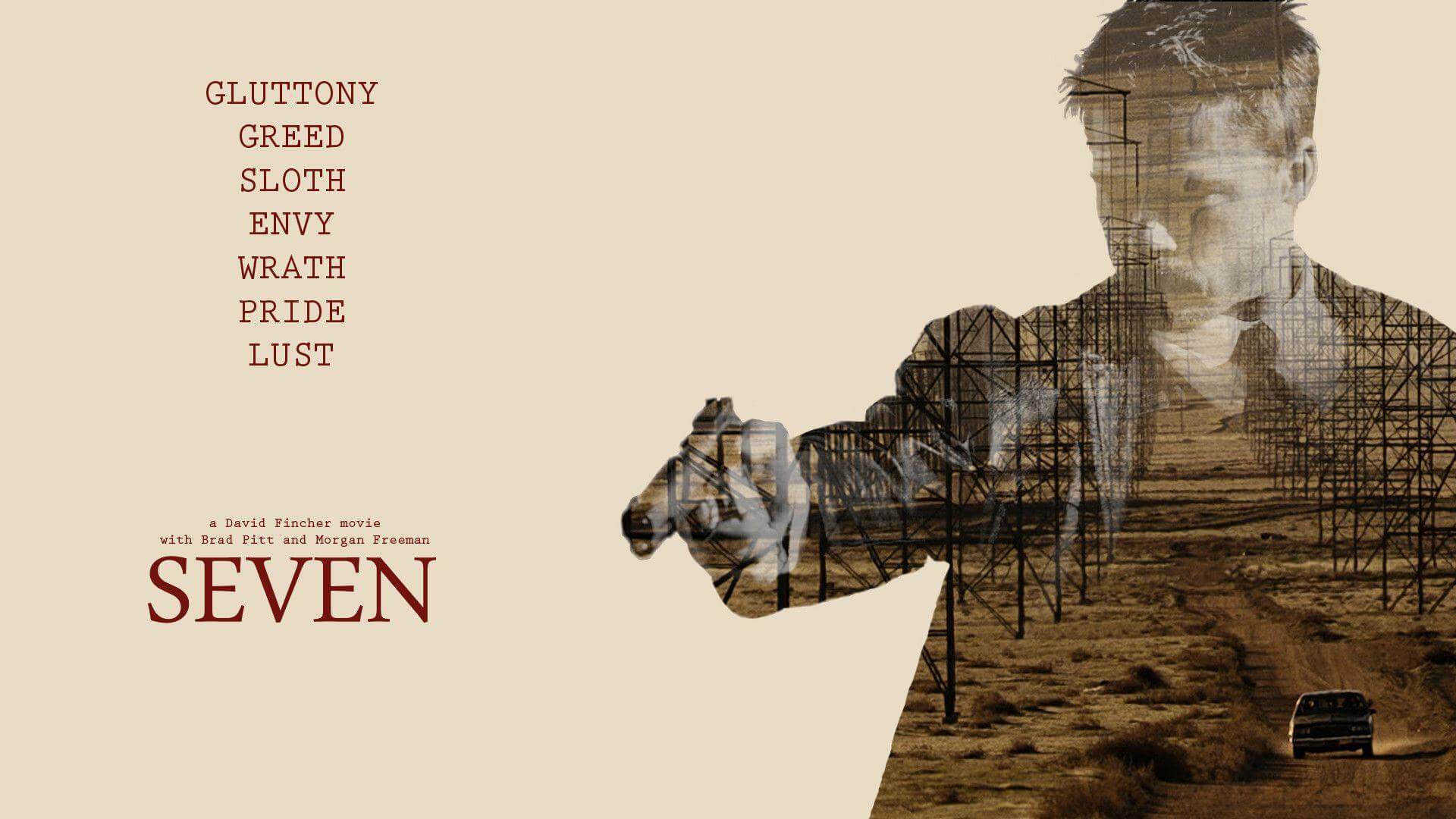
“Se7en,” directed by David Fincher, is a dark and gripping thriller that takes audiences on a harrowing journey into the minds of two detectives pursuing a serial killer who uses the seven deadly sins as motives for his gruesome murders.
The film follows Detectives David Mills (played by Brad Pitt) and William Somerset (played by Morgan Freeman) as they investigate a series of murders in an unnamed, rain-soaked city. Each murder corresponds to one of the seven deadly sins: gluttony, greed, sloth, lust, pride, envy, and wrath. As the detectives delve deeper into the case, they confront moral dilemmas and a relentless killer who seems to be always one step ahead.
“Se7en” is a relentless descent into darkness. It immerses viewers in a bleak and foreboding world where the rain never stops, and evil lurks around every corner. Fincher’s meticulous direction creates an atmosphere of dread that hangs over the entire film, making it an intense and unsettling experience.
The performances in “Se7en” are exceptional. Brad Pitt’s portrayal of the impulsive and emotionally charged Detective Mills contrasts brilliantly with Morgan Freeman’s portrayal of the wise and world-weary Detective Somerset. Their dynamic adds depth to the characters and the moral questions they grapple with throughout the investigation.
One of the film’s most compelling aspects is its exploration of the seven deadly sins as motives for murder. Each sin serves as a thematic backdrop for a murder, allowing the film to delve into questions of human nature, morality, and the darkness that resides within us all. The murders are gruesome and shocking, leaving a lasting impact on the audience.
“Se7en” also raises profound philosophical and ethical questions. It challenges viewers to consider the nature of justice, the consequences of unchecked sin, and the limits of law enforcement in the face of true evil. The film’s chilling climax forces the characters and the audience to confront the harsh realities of a world where evil sometimes goes unpunished.
In conclusion, “Se7en” is a masterful exploration of the dark corners of the human psyche, a relentless thriller that leaves a haunting impression. With its atmospheric direction, outstanding performances, and thought-provoking themes, it remains a landmark in the genre of investigative thrillers.
-
Silence of the Lambs (1991)**
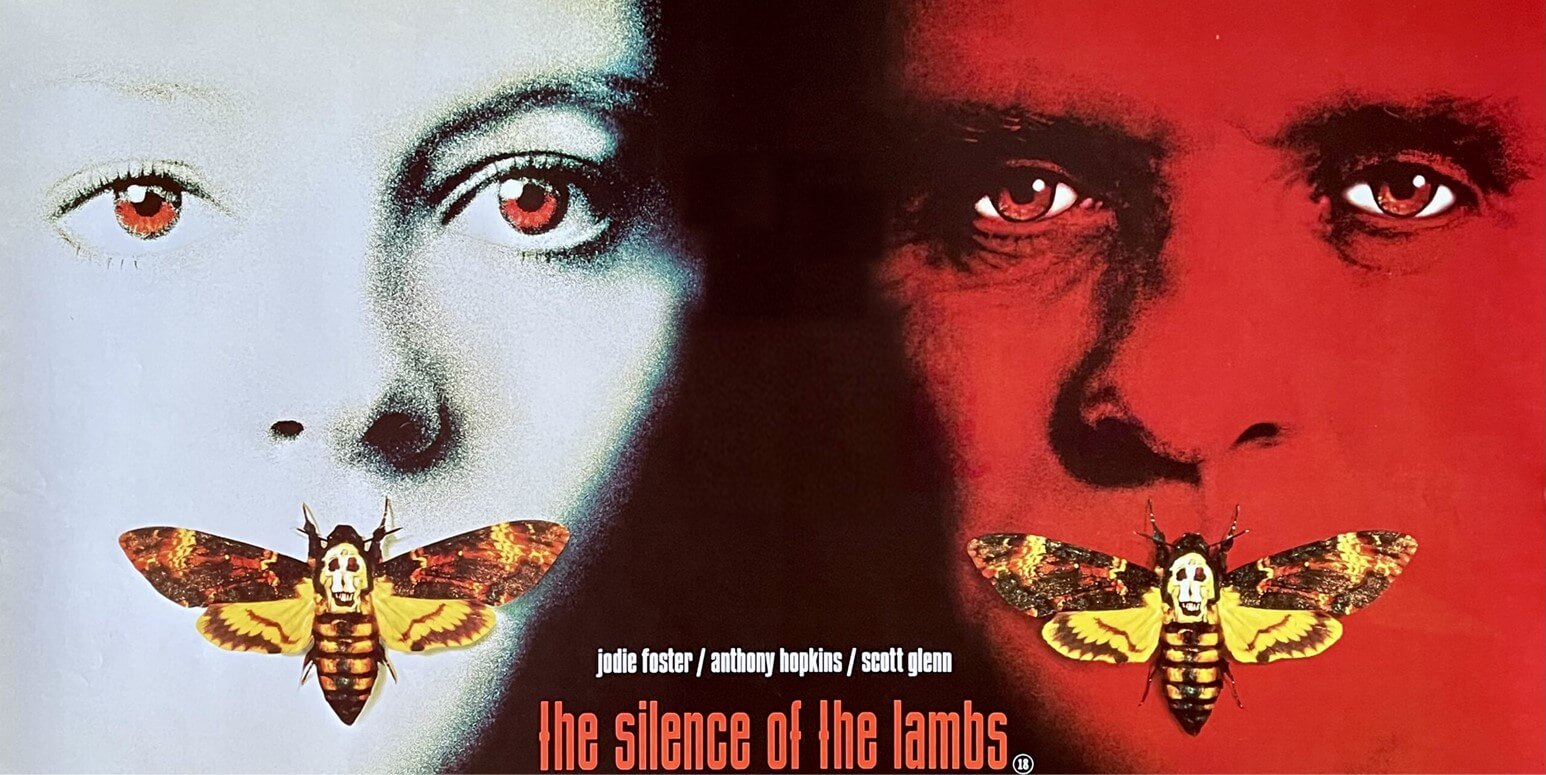
“The Silence of the Lambs,” directed by Jonathan Demme, is a psychological thriller that weaves a complex and twisted narrative around the pursuit of a serial killer. It’s a film that keeps audiences on the edge of their seats, thanks in large part to the mesmerizing performances of its lead actors.
The film introduces us to Clarice Starling (played by Jodie Foster), a young and ambitious FBI trainee. She is recruited by her superior, Jack Crawford (played by Scott Glenn), to assist in the hunt for a serial killer known as Buffalo Bill (played by Ted Levine), who abducts and murders women. To catch this ruthless killer, Starling seeks the help of an incarcerated and brilliant but insane serial killer, Dr. Hannibal Lecter (played by Anthony Hopkins).
What sets “The Silence of the Lambs” apart is its intricate character development and psychological depth. Jodie Foster’s portrayal of Clarice Starling is nothing short of remarkable. She conveys a sense of vulnerability and determination that draws the audience into her world. As she interviews the enigmatic Dr. Lecter, a psychological battle of wits unfolds, with Lecter toying with her while providing crucial clues to the case.
Anthony Hopkins delivers an iconic performance as Hannibal Lecter. His portrayal of the cultured and sinister psychiatrist is chilling and unforgettable. Hopkins brings an eerie charm to the character, making him simultaneously repulsive and captivating. Lecter’s intelligence and manipulation are central to the film’s tension and intrigue.
The film’s investigation into the mind of Buffalo Bill is equally compelling. The psychological profiling and forensic aspects of the case add depth to the narrative, showcasing the meticulous work of the FBI’s Behavioral Science Unit. The pursuit of Buffalo Bill takes the audience into a dark and unsettling world of obsession and identity.
“The Silence of the Lambs” is also notable for its themes of gender and power. Clarice Starling is a strong and determined protagonist, breaking gender stereotypes in a male-dominated field. Her interactions with male colleagues and her confrontation with Buffalo Bill, who targets women, underscore the film’s exploration of power dynamics.
The film’s climactic confrontation in Buffalo Bill’s lair is a masterclass in suspense and horror. It’s a sequence that lingers in the mind long after the credits roll, a testament to the film’s ability to evoke fear and fascination.
In conclusion, “The Silence of the Lambs” is a psychological thriller that transcends the genre. Its complex characters, exceptional performances, and exploration of the darkest aspects of the human psyche make it a timeless classic in investigative cinema.
50 best movies of the decade
-
Prisoners (2013)**
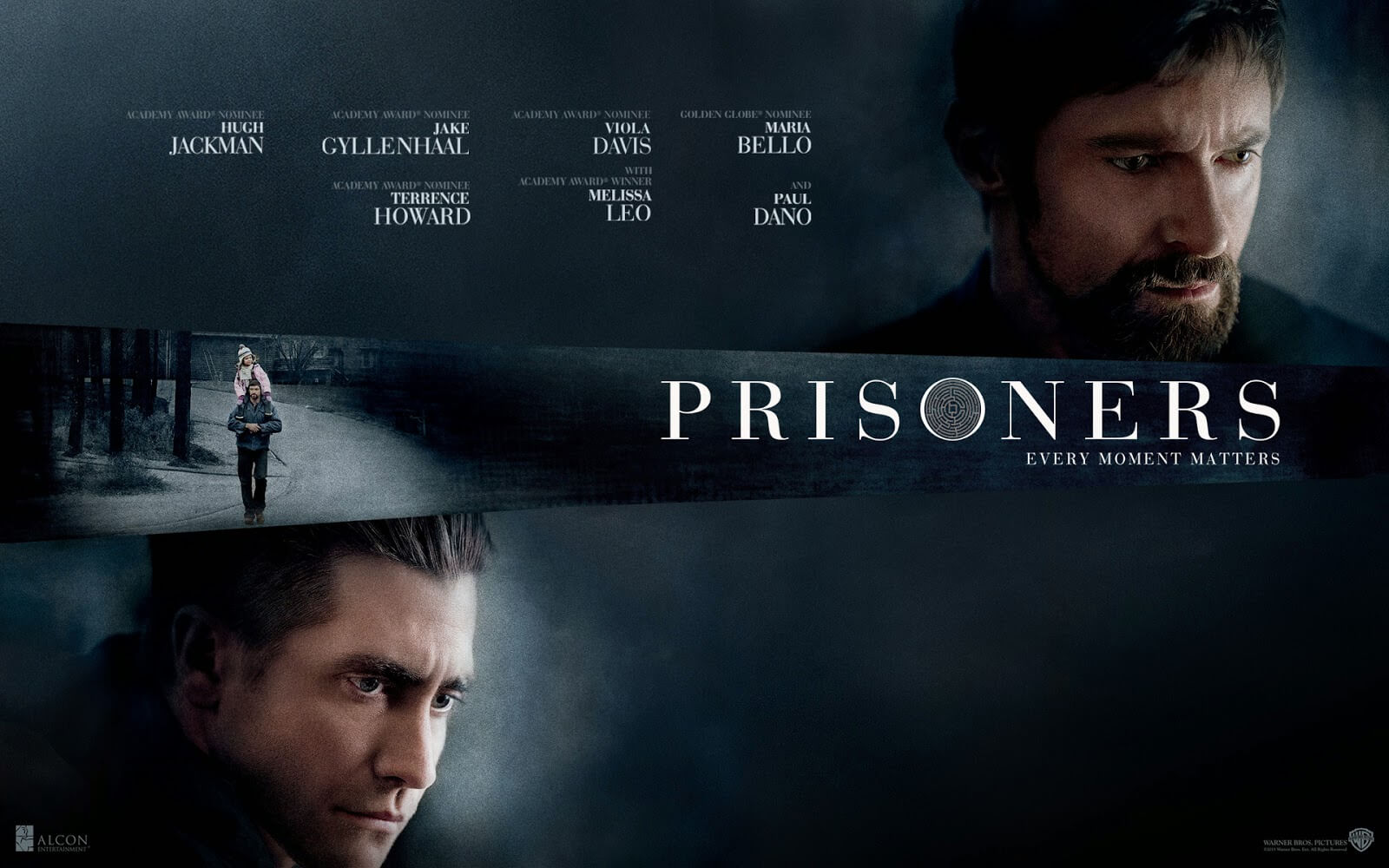
“Prisoners,” directed by Denis Villeneuve, is a haunting and suspenseful film that explores the depths of a father’s desperation when his daughter and her friend go missing. The movie delves into the complexities of justice, morality, and the lengths to which one will go to protect their loved ones.
The story centers on Keller Dover (played by Hugh Jackman) and Franklin Birch (played by Terrence Howard), two fathers whose daughters vanish on Thanksgiving. When the police, led by Detective Loki (played by Jake Gyllenhaal), fail to find any leads, Dover takes matters into his own hands. Convinced that a suspect named Alex Jones (played by Paul Dano) knows the whereabouts of the girls, Dover embarks on a relentless and morally ambiguous quest for the truth.
“Prisoners” is a slow-burning thriller that excels in building tension and suspense. Villeneuve’s direction is deliberate and atmospheric, creating an oppressive sense of dread that pervades the film. The cinematography, marked by moody lighting and bleak landscapes, enhances the feeling of unease.
Hugh Jackman’s performance as Keller Dover is a standout. He portrays a father consumed by fear and desperation, willing to cross ethical boundaries to find his daughter. Jackman’s emotional range is on full display as he grapples with the moral consequences of his actions.
Jake Gyllenhaal delivers a strong performance as Detective Loki, a character haunted by his own past and determined to solve the case. His meticulous and obsessive approach to the investigation adds depth to the character and drives the narrative forward.
“Prisoners” is a film that raises ethical questions about the boundaries of justice and the lengths to which individuals will go when faced with unimaginable loss. Dover’s descent into darkness and his clash with Loki, who is committed to upholding the law, form the core of the film’s moral dilemma.
The film’s exploration of the theme of vigilantism is particularly compelling. It forces viewers to consider whether the pursuit of justice can ever justify actions that violate the law and moral principles. As Dover’s actions become increasingly extreme, the line between right and wrong blurs, leaving the audience with unsettling questions.
In conclusion, “Prisoners” is a gripping and thought-provoking thriller that examines the human capacity for both darkness and resilience. Its exploration of justice, morality, and the consequences of desperate actions makes it a standout in the realm of investigative cinema.
-
The Insider (1999)**
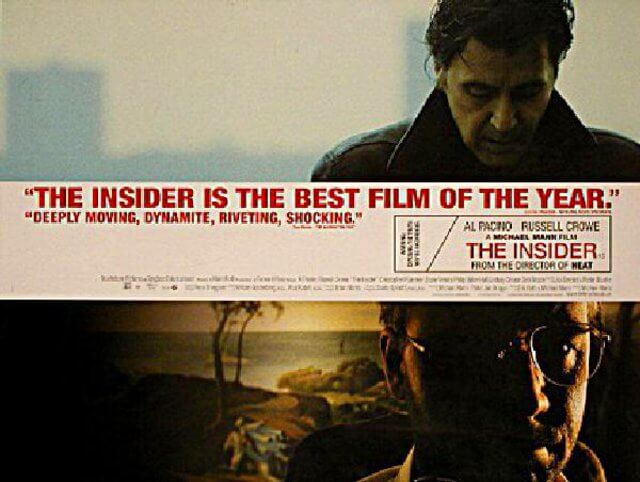
Watch it on Primevideo
“The Insider,” directed by Michael Mann, is a gripping and socially relevant film that delves into the world of corporate whistleblowing and investigative journalism. It’s based on the true story of Jeffrey Wigand, a former tobacco industry executive, and Lowell Bergman, the “60 Minutes” producer who helps him expose the industry’s secrets.
The film stars Russell Crowe as Jeffrey Wigand, a scientist and executive at Brown & Williamson, one of the major tobacco companies. When Wigand decides to blow the whistle on the industry’s knowledge of the health risks associated with smoking, he becomes a target of intense pressure and threats from his former employers. Enter Lowell Bergman,played by Al Pacino, a veteran investigative journalist who is determined to bring Wigand’s story to the public.
What sets “The Insider” apart is its exploration of the ethical and personal dilemmas faced by both Wigand and Bergman. Wigand’s decision to come forward jeopardizes his career, reputation, and even the safety of his family. Crowe’s portrayal of Wigand captures the internal struggle of a man torn between his conscience and the consequences of his actions.
On the other hand, Bergman’s dedication to uncovering the truth puts his journalistic principles to the test. He faces legal threats and pressure from his network, CBS, to delay or suppress the story. Al Pacino delivers a nuanced performance that highlights the complexities of investigative journalism and the responsibility of the press to hold powerful interests accountable.
“The Insider” also shines a spotlight on the tactics used by the tobacco industry to conceal the dangers of smoking. The film’s portrayal of the industry’s ruthlessness and willingness to protect its profits at the expense of public health is both disturbing and eye-opening.
The film’s pacing is deliberate, allowing viewers to immerse themselves in the tension and moral quandaries faced by the characters. The slow build-up of suspense culminates in a tense deposition scene where Wigand exposes the industry’s deception.
“The Insider” ultimately celebrates the power of investigative journalism to expose wrongdoing and spark change. It reminds us that truth-telling often comes at a high personal cost but is essential for the greater good. The real-life events that inspired the film had a profound impact on public perception of the tobacco industry and contributed to significant legal actions against it.
In conclusion, “The Insider” is a compelling and thought-provoking film that sheds light on the challenges faced by whistleblowers and investigative journalists. With its exceptional performances, ethical dilemmas, and exploration of corporate deceit, it remains a powerful testament to the importance of truth in the face of corporate power.
-
Gone Girl (2014)**
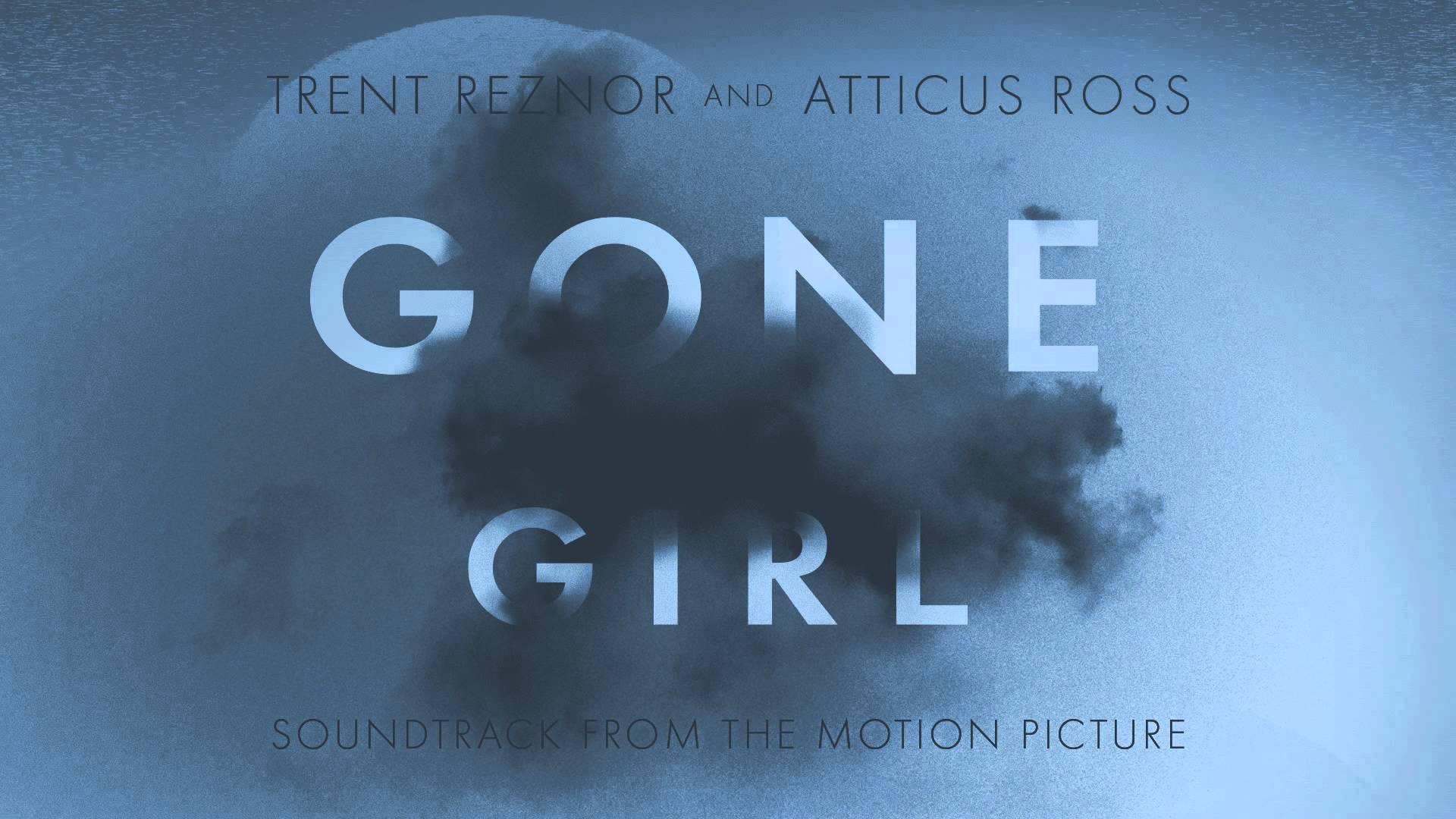
“Gone Girl,” directed by David Fincher and based on Gillian Flynn’s bestselling novel, is a psychological thriller that keeps audiences guessing until the very end. It’s a film that explores the complexities of marriage, media manipulation, and the blurred lines between truth and fiction.
The story revolves around Nick Dunne (played by Ben Affleck) and Amy Dunne (played by Rosamund Pike), a seemingly perfect couple whose marriage takes a dark turn when Amy goes missing on their fifth wedding anniversary. As the investigation unfolds, Nick becomes the prime suspect, and the media frenzy surrounding the case spirals out of control.
“Gone Girl” is a masterclass in storytelling, with its narrative structure shifting between Nick’s present-day perspective and Amy’s diary entries recounting the past. This dual narrative keeps viewers engaged and constantly reevaluating their perceptions of the characters and their marriage.
Ben Affleck’s portrayal of Nick Dunne is layered and complex. He captures the character’s sense of confusion, frustration, and mounting paranoia as he navigates the media circus and the police investigation. Rosamund Pike’s performance as Amy Dunne is a revelation, as she oscillates between victim and manipulator, revealing hidden depths with each twist in the story.
The film also offers a scathing commentary on the sensationalism of the media and its impact on public perception. As the investigation unfolds, Nick becomes the target of intense scrutiny from the press and public, transforming the case into a modern-day witch hunt. “Gone Girl” highlights the dangers of trial by media and the way public opinion can be swayed by sensational headlines.
The film’s exploration of the dynamics of marriage is equally compelling. It delves into the dark secrets and resentments that can fester beneath the surface of even the most seemingly idyllic relationships. As the layers of Nick and Amy’s marriage are peeled away, the film raises uncomfortable questions about trust, deception, and the masks we wear in relationships.
One of the film’s most striking aspects is its commentary on the performance of identity. Both Nick and Amy craft narratives about themselves to manipulate those around them. This theme of performative identity adds a layer of psychological complexity to the story and invites viewers to question the authenticity of the characters.
In conclusion, “Gone Girl” is a psychological thriller that keeps audiences riveted from start to finish. With its intricate narrative, outstanding performances, and exploration of marriage, media, and identity, it’s a film that leaves a lasting impact and encourages viewers to ponder the dark corners of the human psyche.
-
Chinatown (1974)**
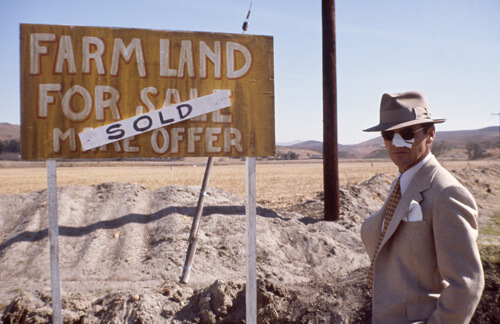
“Chinatown,” directed by Roman Polanski and starring Jack Nicholson and Faye Dunaway, is a classic example of the film noir genre and a masterful exploration of corruption and deception in 1930s Los Angeles.
The film follows J.J. Gittes (played by Jack Nicholson), a private investigator who specializes in exposing marital infidelity. Gittes is hired by a woman named Evelyn Mulwray (played by Faye Dunaway) to investigate her husband, Hollis Mulwray, the chief engineer for the Los Angeles Department of Water and Power. As Gittes delves into the case, he uncovers a web of deceit, land grabs, and political corruption that reaches the highest echelons of power in the city.
“Chinatown” is renowned for its screenplay, written by Robert Towne, which is often cited as one of the greatest in cinematic history. The film’s dialogue is sharp and witty, and it weaves a complex narrative that keeps viewers engaged from start to finish.
Jack Nicholson’s portrayal of J.J. Gittes is iconic. He embodies the character’s world-weary cynicism and determination to uncover the truth, even when faced with dangerous and powerful adversaries. Faye Dunaway delivers a captivating performance as Evelyn Mulwray, a character shrouded in mystery and vulnerability.
The film’s visual style is a hallmark of the film noir genre. Cinematographer John A. Alonzo creates a moody and atmospheric Los Angeles, with its dark alleys, dimly lit rooms, and rain-soaked streets. The use of shadows and chiaroscuro lighting adds to the film’s sense of foreboding and moral ambiguity.
“Chinatown” also serves as a commentary on the abuse of power and the lengths to which the powerful will go to protect their interests. The manipulation of the city’s water supply for financial gain serves as a metaphor for the exploitation of resources and the disenfranchisement of the vulnerable.
One of the film’s most memorable aspects is its shocking and morally complex ending. Without giving away spoilers, the conclusion leaves viewers with a sense of injustice and a stark reminder of the corrupting influence of power.
In conclusion, “Chinatown” is a timeless classic that continues to captivate audiences with its blend of sharp dialogue, outstanding performances, and exploration of moral and political corruption. It’s a film that showcases the enduring power of the film noir genre in telling dark and morally complex stories.
-
Mystic River (2003)**
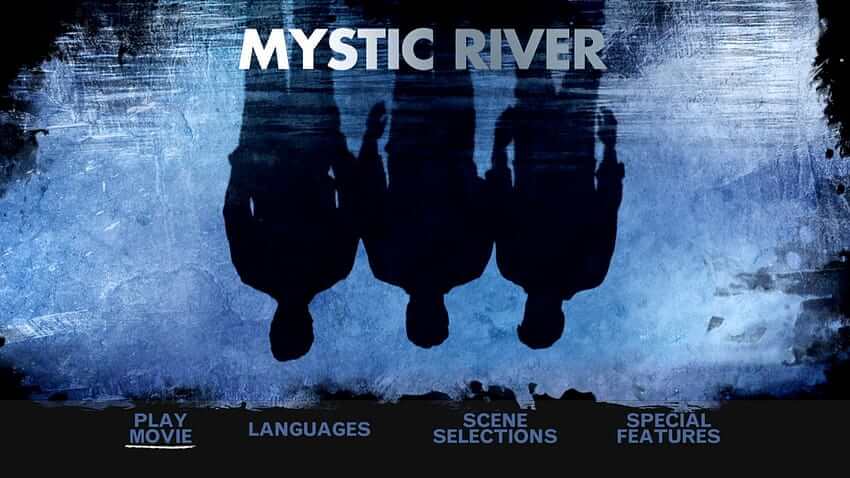
“Mystic River,” directed by Clint Eastwood and based on the novel by Dennis Lehane, is a haunting and emotionally charged film that explores the impact of a traumatic event on three childhood friends and the subsequent investigation that threatens to unearth long-buried secrets.
The film is set in a working-class neighborhood in Boston and revolves around the lives of Jimmy Markum (played by Sean Penn), Dave Boyle (played by Tim Robbins), and Sean Devine (played by Kevin Bacon). The three friends are reunited by a tragedy: the murder of Jimmy’s daughter. As Sean, now a detective, investigates the crime, painful memories and unresolved traumas resurface, casting a shadow over their lives.
“Mystic River” is a character-driven drama that excels in portraying the complex and layered emotions of its protagonists. Sean Penn’s performance as the grief-stricken and vengeful Jimmy is powerful and emotionally charged. Tim Robbins delivers a nuanced portrayal of Dave, a man haunted by a childhood trauma. Kevin Bacon’s portrayal of Sean, caught between his duty as a detective and his loyalty to his friends, adds depth to the narrative.
Clint Eastwood’s direction is understated and evocative, allowing the characters and their relationships to take center stage. The film’s cinematography captures the gritty and atmospheric quality of the neighborhood, enhancing the sense of place and authenticity.
One of the film’s central themes is the enduring impact of childhood trauma and the way it shapes the lives of the characters. The dark incident that binds the three friends in their youth continues to influence their choices and relationships in adulthood. “Mystic River” explores the long-lasting scars of trauma and the difficulty of finding closure.
The film’s investigation into the murder is a catalyst for the characters’ introspection and self-examination. It raises questions about the nature of justice and the consequences of seeking revenge. As secrets are revealed and truths come to light, the characters are forced to confront their own culpability and the moral gray areas in their lives.
In conclusion, “Mystic River” is a poignant and emotionally resonant film that delves into the complexities of friendship, trauma, and the search for meaning in the face of tragedy. With its exceptional performances and exploration of moral and emotional dilemmas, it stands as a compelling entry in the genre of investigative dramas.
50 best movies of the decade
These are just a few highlights from each of the top 10 investigative movies that have left a lasting impact on audiences and the world of cinema. Each film offers a unique perspective on the investigative genre, whether it’s through the lens of journalism, law enforcement, or personal morality. They continue to be celebrated for their storytelling, performances, and the enduring themes they explore.








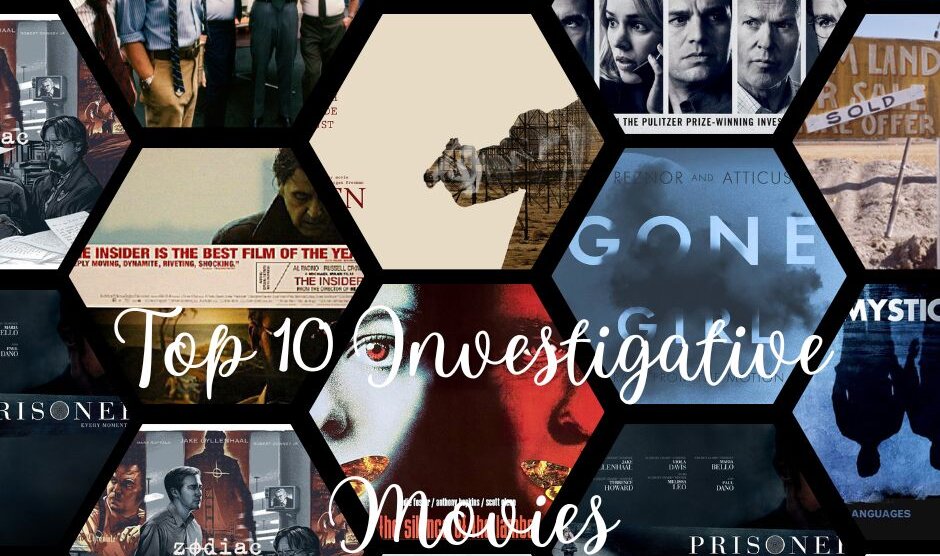


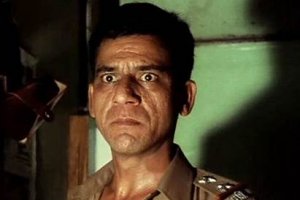



Add Comment